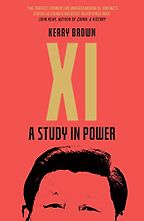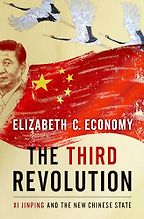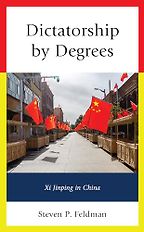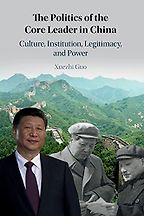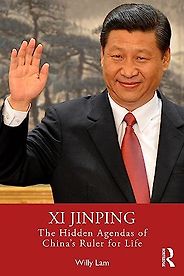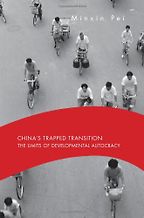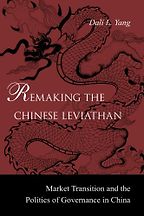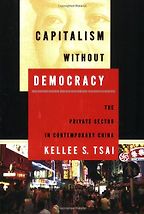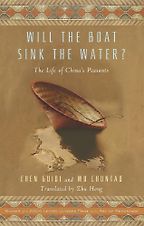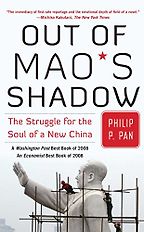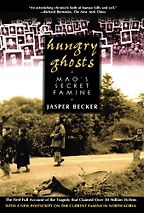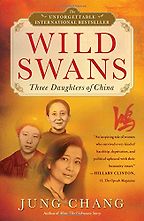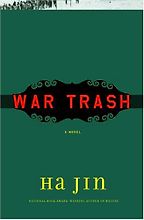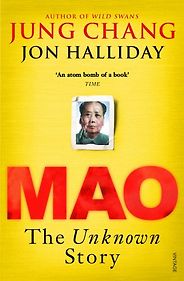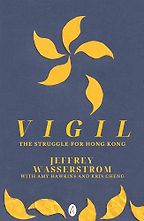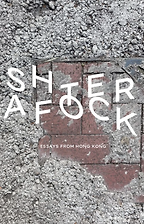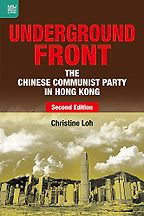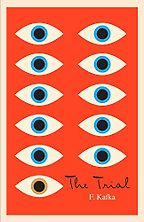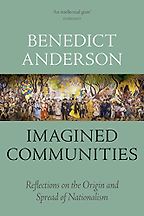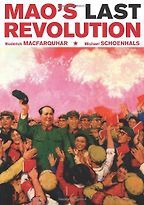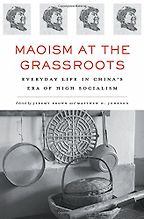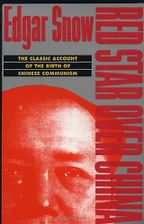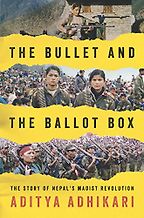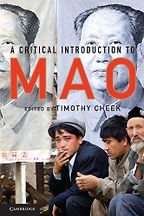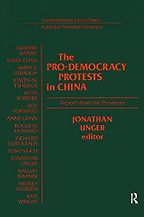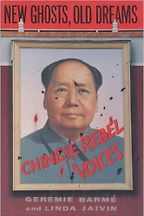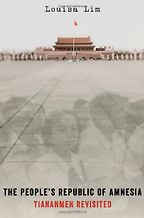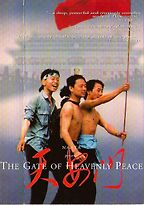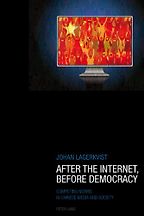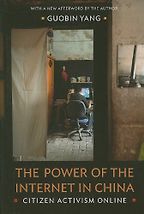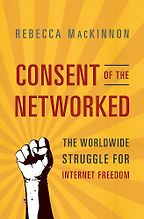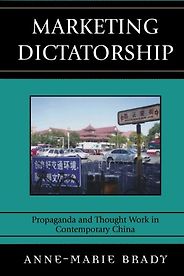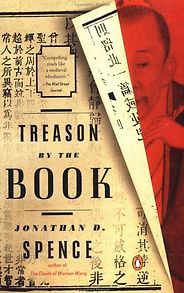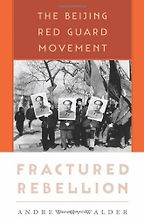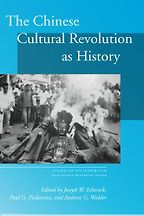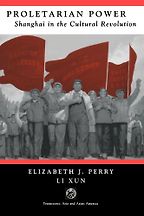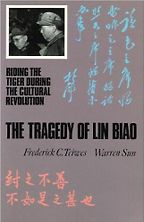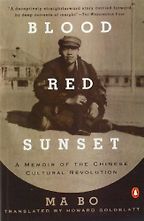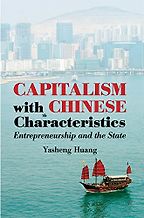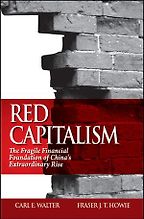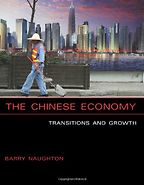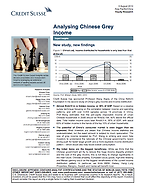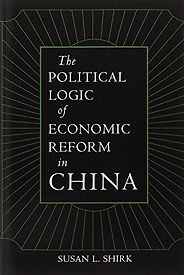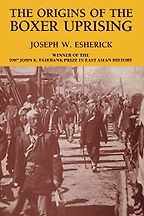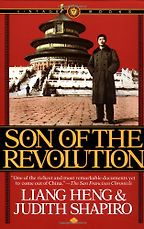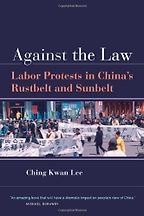Chinese Politics
Last updated: April 30, 2025
The People's Republic of China is one of five remaining countries in the world ruled by a communist party: the Chinese Communist Party or CCP, which has ruled China since 1949. For the early days of the CCP, it's worth reading Red Star Over China by Edgar Snow, the American journalist who joined Mao and his revolutionaries before they took power and presents a firsthand but rose-tinted view of their early days in the caves of Yan'an. A more recent book investigating how the CCP operates in the modern era—when an authoritarian, Marxist-Leninist political structure goes hand-in-hand with a market economy—is The Party, by Richard McGregor, an Australian journalist.
Since that book was published, things have headed in a much more authoritarian direction in China under Xi Jinping. It's worth noting that despite the apparent lack of opposition to Xi's appointment to a third term as the CCP's General Secretary—a break with reform-era tradition which limits leaders to two terms—there are many in China's elite who are furious about it. A good introductory book to the issues is Kerry Brown's Xi: A Study in Power; if you're ready to get into the details, our in-depth interview about Xi Jinping and his rule, with Olivia Cheung of SOAS, is below.
No account of Chinese politics is complete without a look at the regions on the country's edges that are part of the PRC, but crave autonomy and have risen in rebellion in recent years—as they often do when Beijing tries to exert greater control and resorts to repression. In addition to the books recommended in the interviews on Tibet and Hong Kong below, we also have a list of books about Xinjiang.
-

1
Xi: A Study in Power
by Kerry Brown -

2
The Third Revolution: Xi Jinping and the New Chinese State
by Elizabeth Economy -

3
Xi Jinping: The Hidden Agendas of China’s Ruler for Life
by Willy Lam -

4
Dictatorship by Degrees: Xi Jinping in China
by Steven Feldman -

5
The Politics of the Core Leader in China: Culture, Institution, Legitimacy, and Power
by Xuezhi Guo
The best books on Xi Jinping, recommended by Olivia Cheung
The best books on Xi Jinping, recommended by Olivia Cheung
Despite his own and his family’s suffering under Maoism, China’s president, Xi Jinping, has turned his back on some of the reforms of the past four decades, dismantling safeguards designed to ensure that some of the disasters of that era never happen again. Olivia Cheung, a research fellow at SOAS and co-author of The Political Thought of Xi Jinping, recommends books to better understand China’s leader and his quest to build a new world order—led by China and admired by all.
The best books on Obstacles to Political Reform in China, recommended by Richard Baum
The China specialist and UCLA professor Richard Baum (1940-2012) says that he sometimes feels genuine admiration for China’s technocratic leaders. Other days, he shakes his head at their obsessive intransigence and China’s endemic political insecurity.
The best books on China’s Darker Side, recommended by Harry Wu
Activist Harry Wu spent 19 years in Mao’s labour camps and devoted years to uncovering what goes on in China’s ‘laogai’ or ‘reform-through-labour’ camps. He picks five books showing China’s darker side.
The Best Books on the Hong Kong Protests, recommended by Ben Bland
Around the world people have followed the standoff in Hong Kong with apprehension, as local protestors have taken on the might of China’s powerful Communist Party. Here Ben Bland, author of Generation HK and Director at Australian think tank the Lowy Institute, talks us through books to better understand what’s been going on these past few years and what’s at stake for Hong Kong’s citizens and activists.
-

1
Mao’s Last Revolution
by Michael Schoenhals & Roderick MacFarquhar -

2
Maoism at the Grassroots
edited by Jeremy Brown and Matthew D. Johnson -

3
Red Star over China
by Edgar Snow -

4
The Bullet and the Ballot Box: The Story of Nepal's Maoist Revolution
by Aditya Adhikari -

5
A Critical Introduction to Mao
by Timothy Creek
The best books on Maoism, recommended by Julia Lovell
The best books on Maoism, recommended by Julia Lovell
While researching Maoism, China expert Julia Lovell battled against two incorrect assumptions: “firstly that Maoism is a story of China; and secondly that Maoism is a story of the past.” Here she recommends five books for coming to grips with the global, still-relevant impact of Maoism.
The best books on June 4th, 1989, recommended by Jeffrey Wasserstrom
In contrast to Eastern Europe, the 1989 protests in China did not lead to the overthrow of the Communist Party. But if China’s leaders chose the right course on June 4th, 1989, why are they still frightened to come to terms with it? Sinologist and historian Jeffrey Wasserstrom picks the best books to understand events at Beijing’s Tiananmen Square and around China on that hot summer night.
The best books on China and the Internet, recommended by Gady Epstein
The ‘Great Fire Wall of China’. How has the Chinese Communist Party managed to survive the internet? Economist correspondent Gady Epstein chooses books on the world’s most successful case of authoritarian control of the internet.
The best books on The Cultural Revolution, recommended by Roderick MacFarquhar
Countries do have to come to terms with their own history, and it’s unhealthy that China has not yet come to terms with the Cultural Revolution, argues the West’s leading scholar of the period, Roderick MacFarquhar. He chooses the best five books on the Cultural Revolution.
The best books on The Chinese Economy, recommended by Victor Shih
Victor Shih’s selection highlights rising inequality, economic irregularity and political heavy-handedness at the heart of modern China. As its economy blazes on, uncertain times may be looming
The best books on Popular Protest in China, recommended by Elizabeth Perry
To fully understand unrest in China today you have to go back to the 1930s and the circumstances which led to the Chinese Communist Party taking power, says Harvard political scientist Elizabeth Perry. She recommends the best books on popular protest in China.
